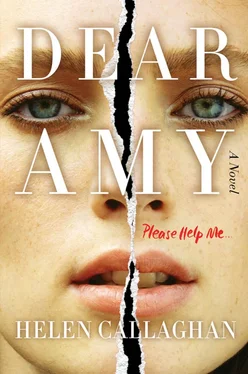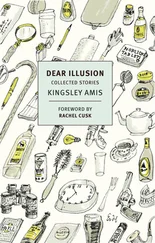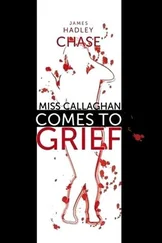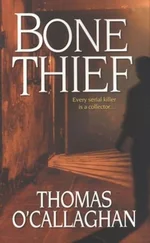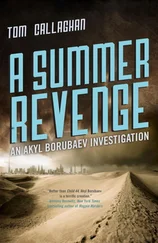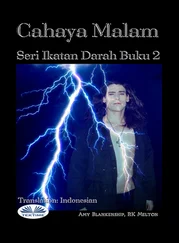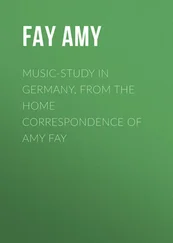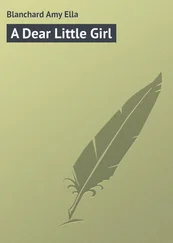‘What do you mean?’ I was growing alarmed by him, by the steely change in his attitude.
‘You may not be doing this deliberately,’ he said, ‘but that doesn’t change the fact that there are consequences to your actions. Get in the car. Now .’

I don’t know why I did it, but I did. Perhaps it was due to the complete collapse of any and all moral authority I might have pretended to, but I let him push and prod me into his chocolate-brown Range Rover and sat meekly while he drove away from his house down the winding country road through the village, heading south.
I was absolutely poleaxed.
I had written letters pretending to be Bethan Avery, a likely long-dead murder victim. It was morally repugnant and very likely illegal. Most horrifyingly, now that I had been confronted with this, I could guess for you exactly when I had written them. The last had been in the warehouse, in Farrell’s Distribution. I didn’t even have drink to blame. The second had been after Eddy’s visit, when he’d tried and failed to seduce me. And the first…
The first had been after the police had visited the school for the final time. Katie Browne had been missing for nearly a month. They’d told the headmaster that they could find no evidence that she’d been kidnapped – she’d packed a bag and taken some personal effects and money – so they were scaling back the search. She was sixteen, after all. I had been in on the meeting, and listened with increasing ire. So what if she was sixteen? So what if she had problems? If she’d been lured away from her house and had concealed why, not even leaving a note, then clearly something wasn’t right.
‘If she’s just absconded with some boyfriend,’ I said, aware that my cheeks were red, and I was shaking slightly, and that I was scaring the others more than a little, ‘then why wouldn’t she just say?’
The policeman, transparently alarmed at my apparent lack of self-control, had coughed and harrumphed and shrugged and said that ultimately it wasn’t illegal to leave your home when you were of legal age.
‘But it is illegal to bail out of school,’ I said. ‘And it is very suspicious and out of character that this girl would behave that way. She was very committed to her swimming, for example.’
More mumbling and blushes. I suspect, looking back, that the young officer hadn’t agreed with me about this. There was more information that had come up, which he couldn’t disclose, family troubles, etc., that led them to believe she’d left voluntarily. Other forces had been notified, and they just wanted to let us know, thanks very much for the tea, get in touch if you hear anything else.
So much for the search for Katie Browne.
Martin drove in silence and, having nothing to say in the face of my epic humiliation, I did nothing to break it.
We barrelled down the M11 for an hour, passing the turn-off to Stansted, before rolling off the motorway and taking a series of increasingly narrow country lanes.
‘Where are we going?’ I asked eventually. When he’d told me to get in the car, I’d thought we were only going down the road. My shoulder had started to hurt again, cold sweat trickling into the wound through my compromised bandage.
‘Wastenley,’ he said. His voice was neutral, and it was impossible to tell what he was thinking. ‘We’re nearly there.’
The name sounded familiar, as if I should know it, but in my confused, lost state I couldn’t conjure its context. ‘And where is Wastenley?’
He turned to me and narrowed his eyes, as if I had failed a test.
‘You’ll see.’
Wastenley was an expertly trimmed and planted Essex village – there was a sign on the road into it announcing it was a 1989, 1993, 1997 and 2012 winner of Britain in Bloom. I could feel my heart sink. I have never felt comfortable in these kinds of places – places where everyone knows one another, where people have deep roots and where everyone is expected to contribute and, in this instance, compete.
The village gardening committee was run like the Kremlin during the Cold War.
Who had said that? It sounded so familiar somehow.
Martin drove past picture-perfect thatched cottages with exquisitely tidy gardens, past a manicured village green only just beginning to go patchy with encroaching winter, and a twee little post office with a Victorian pillar box outside. A sign taped to the noticeboard advertised a Gilbert and Sullivan revival from the Wastenley Amateur Dramatic and Operatic Society in the Meadhall.
Martin was looking for something, and every so often I would catch him glancing at me.
It was another test, of course. This place must have something to do with Bethan Avery (I couldn’t think why, as its pristine and affluent order would have seemed a million miles away from Bethan’s situation, raised on the edge of town with her impoverished grandmother). Martin, with this insistence that I was Bethan (an inexplicable madness – the handwriting expert was, quite simply, wrong) was expecting me to recognize something about it.
Well, I could happily swear to never having seen any of it in my life before. I had no idea why I had agreed to come, and I grew more and more morose, considering the scale of this monumental disaster. The list of things I needed to do to fix my life had started to grow exponentially. I needed to head off the police before they talked to the school about me – to throw myself on their mercy. I wondered if wasting police time came with a prison sentence. On the other hand, other than the incident with Greta, which I now viewed with a new, horrible sense of shame – she’d seen through me, of course – I wasn’t sure how much time I’d wasted. Mo Khan had analysed the letters, but he clearly hadn’t done much of a job of it, and so here we were.
The letters had caused all of this, and I had written them; there was no escaping from any of that.
Unless Martin had written them, and planted the final one on me.
Or laid hands on them after someone else had written them.
The thought flashed coldly through my brain.
I’d seen the stacked books in his office – the vulnerabilities of young girls in care. If anyone knew how to work the system, to get access to these girls, it would be him .
My heart thudded in horror.
Why did I agree to get in a car with him?

We rolled slowly to a stop in a tiny close of three cottages. On the left was a white plaster and timber confection, built, I would guess, some time in the eighteenth century, and lovingly updated and restored. I got out into the cold wind, and it ruffled my hair as I followed Martin through the squeaky timber gate and along the garden path to the front door.
He gave this door a single, authoritative knock.
I stood back, increasingly alarmed and uncomfortable, and waited. The smell of burning bracken was in the air. What would Martin want out of me to keep silent about all of this? I was at his mercy too.
I was in real trouble.
After a minute or so, just as the silence between us grew unbearable, someone approached slowly through the diamond-shaped spyglass set in the door, moving with the tell-tale carefulness of old age.
Martin raised an eyebrow at me, just before the door opened, revealing a tiny old woman with a perfectly white bun of hair balanced on top of her head. She was gently fat and a pair of cat’s eye glasses perched above her forehead, as if just pushed back rather than removed before she returned to whatever task had been absorbing her. Her hands were white with flour and she was rubbing at them with a tea towel.
Читать дальше
